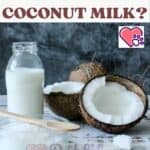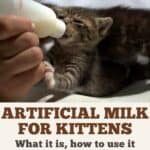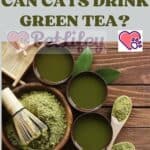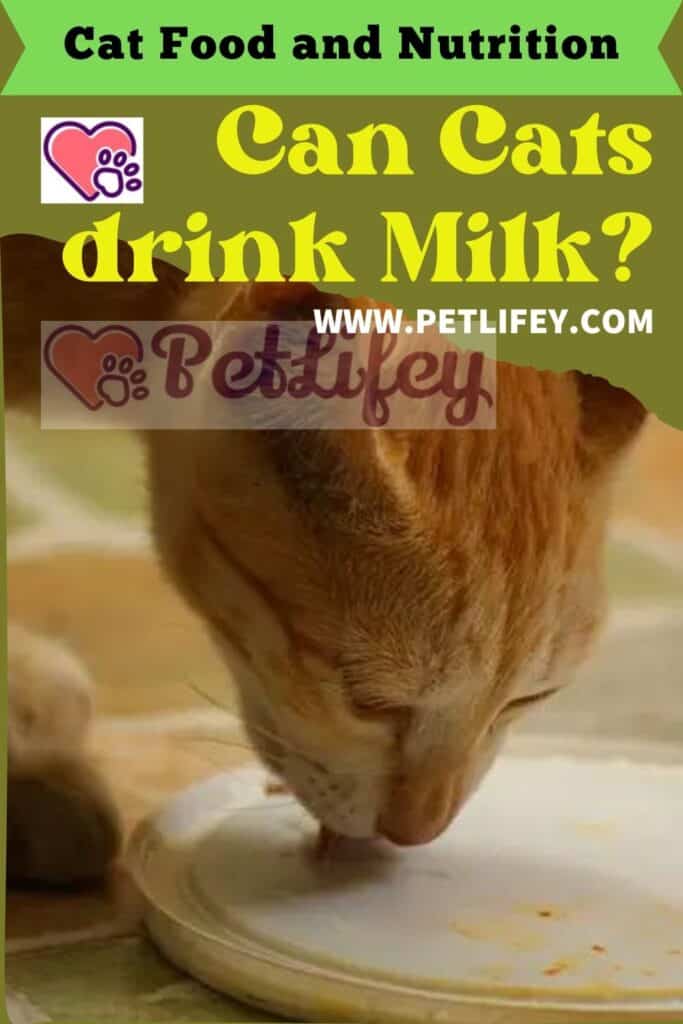
Can the cat drink milk? And if so, what kind of milk can cats drink? A complete list of available options and quantities for your cat.
If you have a cat, you probably know that cats love milk. They seem to crave it, and if you leave the cup with milk on the table your kittens may jump in and drink it straight from your cup!
Cat milk: generic pros and cons
However, milk does not contain essential nutrients that the cat needs and if the cat does not digest it or is allergic it could dilute the nutrients taken from other foods so it should never be a regular part of its diet. The diet of the cat, which is a carnivore, should consist mainly of meat, then of fats and only a small part of carbohydrates that often do not digest.
As I said, milk is not essential in the diet of cats but they really like it! Cats enjoy the high fat content in dairy products. Consuming milk induces relaxation in cats, as does grooming and sleepiness. In other words, the act of drinking milk gives cats pleasure. But milk is not recommended for calming cats when the possible effects on the gut would quickly nullify any potential benefits.
Each cat is different from the other and some can digest milk better than others. Others may develop symptoms of gastrointestinal distress. These include vomiting and diarrhea, stomach pain, gas, and loose stools.
After they are weaned from their mothers, the puppies stop developing the lactase needed to digest milk. According to some studies, nearly a third of cats have been shown to have some sort of food sensitivity to lactose.
Allergies often manifest in cats as gastrointestinal disturbances or on the skin such as hives or redness. Inside the intestine, milk allergies manifest as congestion, edema (swelling from fluid retention), degeneration of the villi (small projections from the mucous membranes), bleeding, and increased plasma cells. Allergies in cats seem severe, but they can be successfully managed. You just have to avoid the foods your cat is allergic to!
There are several types of milk which are discussed in detail below.
Different types of milk: which one can the cat drink?
Can cats drink soy milk?
Soy milk is extracted from soybeans. Cats are carnivores and shouldn’t eat soy because their digestive systems don’t have enough enzymes to handle plant-based proteins. Additionally, some cats, like many humans, are allergic to soy protein.
Can cats drink almond milk?
Almond milk does not contain lactose, so you might think it’s a good idea to give it to your cat. But, although almonds are not considered toxic to pets, they can still be dangerous. They have a high amount of oils and fats which can cause vomiting and diarrhea. Sometimes, eating almonds can cause pancreatitis in cats.
One liter of homemade almond milk can hold up to 16 servings of human-sized almonds so almond milk is not a good one for cats!
Can cats drink coconut milk?
Like almonds, coconuts, which grow on palm trees, have a high amount of oil and fat. Although coconuts aren’t technically nuts, they do have some properties similar to nuts and almonds. As with soy, cats’ digestive systems are unable to digest plant proteins.
However, some studies show that coconut milk can protect rats from ulcers and increase antioxidant levels. Previous studies have shown that rat digestion is similar to that of cat. Veterinarians and other experts believe that cats benefit from coconut oil, which is different from coconut milk. For example, coconut oil is known to increase antioxidant levels in rats.
Can cats drink goat milk?
If your cat is able to tolerate milk, raw goat milk is a good option, always given in small doses and infrequently. Goat milk generally has a higher mineral and vitamin content than cow’s milk, includes some taurine, and has slightly lower amounts of lactose.
Studies have shown that goat’s milk is more easily digested than cow’s milk in rats. It also allows for greater absorption of iron and copper. Fat and weight gain in rats was improved thanks to goat milk, as were cholesterol levels.
In summary then stay away from plant based milks like soy milk, almond milk and coconut milk, while coconut oil is not a problem. If your cats show a tolerance to milk, you can generally give them raw cow’s and goat’s milk to drink.
Types of cow and goat milk for sale
If possible, don’t feed it pasteurized milk and stay away from high-carb milk like sweetened condensed milk and evaporated milk.
Some companies make cat milk but the excessive carbohydrates contained in many of these types of milk cause the same types of problems that occur with pasteurized milk, even more severely. So ask your vet if he can recommend a good brand of cat milk, perhaps lactose-free to avoid the risk of your cat developing this type of intolerance in the future.
The best way to tell if your cats can drink milk is to offer them only one tablespoon of milk at a time. Then monitor their health for about 12 hours. If you don’t see any signs of gastrointestinal discomfort or skin problems, it may be okay to offer them a drop of milk occasionally.
So, as long as the quantities are very small and the frequency is rare you can give your cat milk if they digest it and are not allergic, remembering however that it does not contain nutrients and it is only pleasant for them to drink it. You could give the lactose intolerant cat from milk that does not contain it, but remember what we said above about commercial milk.
Can you give milk to kittens?
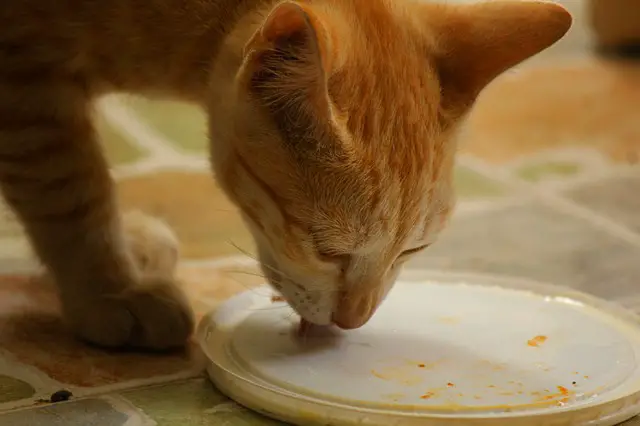
Puppies generally drink their mother’s milk. Mother cats are called queens and cat milk is called queen’s milk. Cats need several essential nutrients that are not essential to most other animals, including humans. These are niacin, vitamin A and vitamin D and the amino acids taurine and arginine.
Cats need taurine for good eyesight, normal digestion, heart health, normal reproduction, and a healthy immune system. Cats can only produce a limited amount and run out of it quickly. Low arginine levels have been linked to cataracts, anorexia, and reduced growth in kittens. Cats cannot synthesize arginine, so they get it from their diet.
Queen’s milk is the best way for kittens to get these nutrients in the right amounts. Regular cow and goat milk should never be given to kittens because these types of milk lack the fat, protein and calories that puppies need.
In some situations, puppies may not have access to breast milk. In this case, the best option is to find a foster mother. If that’s not possible, you need to buy a commercial cat milk substitute that will include those all-important amino acids. Kittens should be fed with a bottle or using a tube if necessary.
Kitten milk replacers generally have the correct nutrients and energy requirements for kittens. However, they tend to have low levels of arginine and taurine. They may also be low in arachidonic acid, a fatty acid needed by cats. This is why queen milk is a better option, if available. The recipe for commercial milks must have been approved by a certified veterinarian.
How much milk does a newborn kitten need?
Scientists say kittens should get 13-18 milliliters of cat milk replacer per 100 grams of body weight, to begin with. As they get older, this amount should be gradually increased. Base the gain on health, appearance, and weight gain. Kittens should gain around 18-20 grams per day. If your pups are active and respond to stimuli around them, they are doing just fine. If they are always hungry, you may need to reevaluate the amount of milk.
Kittens should be given cat food regularly starting at around 3-4 weeks. They should be fully weaned at six weeks.
Can kittens drink baby milk?
The formula for babies is very rich in lactose. The extra lactose allows this commercial milk to have a texture that is more like breast milk. But, even though kittens can digest lactose, it’s too much for them.
So, if you give it to your puppies, they may be suffering from gastrointestinal upset. The resulting diarrhea can dehydrate them during an important period of their development. Also, taurine, arginine and other amino acids and nutrients are not available in the baby formula in the quantities needed to support a growing kitten.
Bottom line, we all know that cats like milk. Research shows that milk calms cats and gives them pleasure. But studies also show that giving cats milk is not good because most cats are lactose intolerant and some are allergic. Milk as part of a regular diet can have serious negative consequences for the health of cats.
However, if your cat appears to be able to digest milk, the best milk to provide is raw cow or goat milk. But only give him a spoonful of milk once a week at most.

